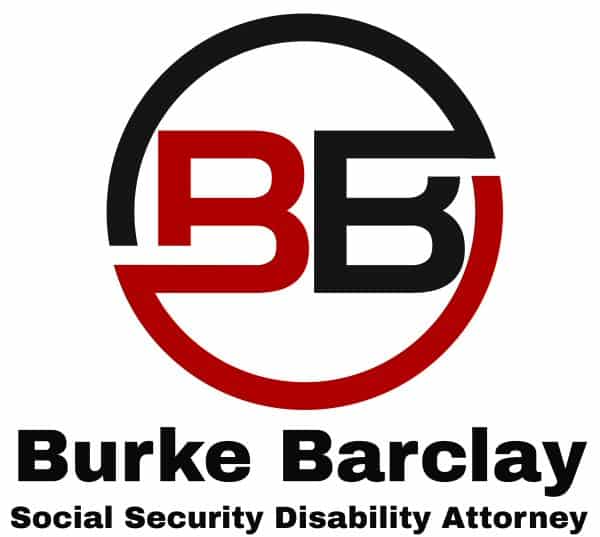Five Step Process Social Security Uses
For most people, the fact that they have a severe medical condition, either physical or mental, leads them to believe they are unable to work and should receive Social Security disability benefits.
Sadly, this could not be further from the truth. The reality is that there is a five step process Social Security uses to determine if a person is disabled by their own rules. I cannot express how important this is. Just because your doctor or anyone else states that you are disabled, this will hold little weight in determining whether or not you should receive disability benefits.
The five step process Social Security uses is more complicated than what I am about to give you, but you should be able to gain general knowledge from this article to evaluate whether or not you should apply for Social Security disability benefits.
1. Are you still working? If you are working at what Social Security deems “Substantial Gainful Activity,” then you will receive what is called a technical denial. You will be automatically denied. For 2015, if a non-blind person is earning more than $1,090.00 per month, then he or she will be considered not disabled and cannot receive disability benefits.
2. Are your conditions severe? A person must have a medically determinable physical or mental condition that meets the requirement that he or she has either been out of work for 12 months or more or is expected to do so (or your condition is likely to lead to your death). For a person’s condition to be severe, it must interfere with basic work-related activities.
Again, this stage becomes quite complicated and oftentimes is argued at the hearing stage, but suffice it to say that common sense can often lead a person to know whether or not his or her condition is severe enough that he or she cannot work.
3. Does a person’s condition meet a medical listing or is it equal in severity? Understand, it is very difficult for a person to meet the medical listings given by the Social Security Administration. If one does meet a medical listing, he or she will be automatically approved for disability benefits, as long as he or she is not engaging in substantial gainful activity.
If a person does not meet a medical listing, then there must be a determination of what is called a person “Residual Functional Capacity” to determine if he or she is capable of fulfilling the requirements of steps 4 and 5. Again, this is much more complicated, but to help matters, you can always at least research your condition on Social Security’s website to know whether or not your impairment does fulfill the requirements set forth in the listings.
4. Can you do the work you used to do? The Social Security Administration will go back in time 15 years to look at each job you performed. There will then be a determination as to whether he or she is capable of performing one of those jobs. If that person has the “Residual Functional Capacity” of returning to one of those types of jobs, then the claim will be denied at this stage.
For example, if a person has a back injury and he worked at a desk job eight years ago and most recently worked construction, then if he can return to a desk job and do what he used to do, then that person will be found not disabled and the claim will be denied.
Here is where one needs to look back at their work history and make a determination as to whether or not he or she is capable of doing any kind of work within the last fifteen years. If you did perform at any of these jobs at substantial gainful activity (as described in Step 1), then there will be a determination of not disabled.
5. Are you able to do something else? This is where the process gets even more complicated. Taking into consideration your age, education, and transferable work skills, can you adjust to some other kind of work?
So, let’s give you an example here to help make this more clear. Let’s use a hypothetical person that has bipolar disorder which keeps him from being able to work around other people or able to concentrate for very long or take direction from a supervisor. Well, the Social Security Administration may agree at this stage that he is unable to perform at any of his previous jobs and he cannot adjust to any other kind of work. Thus, this hypothetical person would be likely found disabled.
However, this is the step which is usually argued most heavily at a person’s hearing. A vocational expert will be used to determine whether or not he or she can perform some other type of work. Sadly, many people are very frustrated at their hearing because some pretty weird jobs are designated as the kind that a hypothetical person (which matches the same description of themselves) can adjust to.
Ever heard of a silver wrapper or a dowel inspector? Beware, you could have a severe impairment but the Social Security Administration may still determine that you are capable of performing jobs just like this, even if you’ve never heard of them before in your life.
You Need an Experienced Social Security Disability Lawyer
We represent claimants fighting for their Social Security disability benefits throughout Texas and California. Contact the Law Office of Burke Barclay for a highly experienced Social Security Disability Lawyer in Dallas, Texas
"Experienced Social Security Disability Lawyer representing clients throughout the United States who either need to initially file for their Social Security disability benefits or have been denied at one of the various stages throughout the process to give them the best chances of success."
Business Address
3838 Oak Lawn Ave.
Suite 1000
Dallas, TX 75219
Business Phone
Business Hours
Monday - Friday
8:00 AM - 5:00 PM





